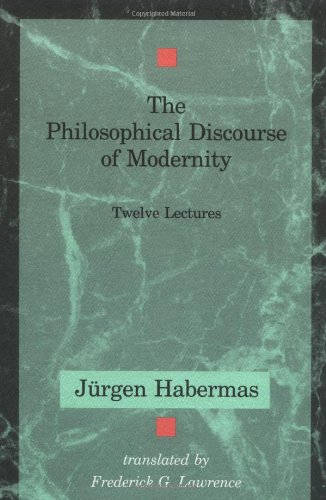The Philosophical Discourse of Modernity pdf download
Par smith denise le vendredi, juillet 29 2016, 19:16 - Lien permanent
The Philosophical Discourse of Modernity. Frederick Lawrence, Jurgen Habermas, Thomas McCarthy

The.Philosophical.Discourse.of.Modernity.pdf
ISBN: 0745608303,9780745608303 | 456 pages | 12 Mb

The Philosophical Discourse of Modernity Frederick Lawrence, Jurgen Habermas, Thomas McCarthy
Publisher: Polity Press
This raises more general questions about the differences between a critical social theory and a critical philosophical position, and illuminates the limitations of the latter. Jürgen Habermas, “Modernity: An Unfinished Project,” in Habermas and the Unfinished Project of Modernity: Critical Essays on The Philosophical Discourse of Modernity, ed. No one else in the meeting had heard of Habermas. Specters of Marx is divided into five chapters organized around the central conception of spectrality — that which is not Jürgen Habermas, The Philosophical Discourse of Modernity, transl. Bernstein has an intriguing argument in Recovering Ethical Life in defence of Foucault and Derrida (and presumably other postmodernists) against Habermas' concerns outlined in The Philosophical Discourse of Modernity. Discourse is an activity designed in order to bring ideas down from the proverbial heavens and affect the course of our lives, our destinies, and our polis. Moral Consciousness and Communicative Action, 1990. Moments of fascinated shock, when those categories fall apart that guarantee in everyday life the confident interaction of the subject with himself and with the world (Habermas, The Philosophical Discourse of Modernity, pp. The Philosophical Discourse of Modernity, 1987. Just as Schmitt accomplished this objective through the discussion on theology, Blumenberg did so in the philosophical discourse on modernity. To be captured by Derrida and Habermas in their respective critiques of Foucault (Derrida in the back and forth beginning with Cogito and the History of Madness, Habermas in the Philosophical Discourse on Modernity). Frederick Lawrence (Cambridge, Mass., 1987), 131.